Wild Camping in Turkey
While camping anywhere outside of registered (paid) campsites is technically forbidden in Turkey, this rule is so unenforced that many local police aren’t even aware of it. We have camped hundreds of nights in many different places and rarely run into any problems. In addition Turkey’s traditional lifestyle and infrastructure make camping easier than you would expect. Read on for some more tips!
Where to camp?
Many foreign visitors to Turkey come for the countries amazing beaches and camping on most of them is definitely an option. Of course, you’ll want to seek out smaller or more unknown beaches, preferably without any businesses offering paid camping, to avoid less-than-friendly reactions from locals. (You can always take advantage of local facilities and stay in one of these paid campsites as well.) The best beaches for wild camping are those only accessible on foot, or with roads in very poor condition that are veritably void of vehicle traffic, however some of these beaches might not have a source of drinking water, so come prepared.
Turkey’s traditional shepherding culture has also provided the country with an endless list of higher altitude campsites. Most shepherds here move their herds up to greener pastures in summer. With their flat, grassy ground, sources of clean water, and frequent mountain views, these pastures make for perfect summer camping and are found across the country, from the Aegean to the Mediterranean to the Black Sea.
If you’re in a pinch, you can also set up a tent for the night near the road-side fountains that dot the country (lesser traveled roads preferred, of course). As populations move out villages and into urban areas, many village primary schools have been closed although their buildings still remain. Camping in the school grounds is other option; just make sure to ask the locals first. Mosques are also a good option, and always safe.
Please note that you should never camp near an ancient city or any ruins (unless extremely remote) as you are almost sure to be mistaken for a treasure hunter and have to explain yourself to police in the middle of the night.
We should also mention that since coastal Turkey sees many more tourists than the central and eastern parts of the country, the residents there will also be more accustomed to campers. In central and eastern Turkey, especially in areas without any touristic sites, you might be subjected to more strange looks and questions than you’re used to. If you’re traveling outside a touristic area, you might feel more comfortable camping just outside of the local mosque.
Food and Water:
If you’ve been to Turkey before, you’ve probably noticed the ubiquitous fountains that dot the roadside. The water of almost all of these stone fountains is funneled from a spring or good, clean source and is fine to drink. These fountains are usually built in honor of a deceased relative (many have a plaque with the name of the person) and are located on the side of roads, paths, in villages, or on the pastures previously mentioned. You’ll also find water at every mosque, but since this water sometimes comes from the normal network of tap water its flavor leaves something to be desired. It’s perfect for cooking or washing though and is still safe to drink if you have no other option. The same goes for all tap water in Turkey: it usually tastes bad but is almost always safe to drink.
Finding food in Turkey is incredibly easy. There are endless options in cities and towns, and most villages have a small market with enough basic items to fill you up. In more touristic areas or on larger roads or highways, you’ll also commonly find locals selling their edible goods on the side of the road. If you happen upon an area without any markets or vendors, it’s not considered rude to ask villagers if they have any products to sell (bread, cheese, fruit, etc.), most of them couldn’t be happier to share their harvest with you.
Wildlife
In Turkey you will almost never have to worry about large predators while camping. Bears still live in small pockets of the country (primarily the Black Sea region), but encountering one is rare. Just to be safe, if you’re in an area with bears you might want to hang your food from a tree or at least store it away from your tent. The real threat to a nice night camping is goats most of which are free-range and roam with or without a shepherd. The goats in Turkey are veracious and will eat anything they can find so make sure to keep your food safe. The only dangerous animals you are likely to encounter on your camping trip are shepherd dogs; you should carry some means of protection (pepper spray, dog repellant whistles, walking sticks) at all times.
campfires
Most of the country (except the Black Sea coast) doesn’t receive much rain during the summer so campfires become even riskier during the dry summer months. Actually we recommend not lighting a fire at any time of year as, in addition to the risk of forest fires, it might attract unwanted attention. If you insist on having a fire please use common sense, reuse fire rings if possible, and stay away from any trees or dry vegetation.
Equipment
Camping equipment is scarce in all but the biggest cities of Turkey (Istanbul, Ankara, Antalya) and even then options can be limited. It’s best to common fully prepared. In the case that you lose or break something, some basic supplies (tents, foam mats, etc.) can sometimes be found at fishing/hunting stores, which are more common than outdoor sports shops. Most gas stations or shops selling cooking gas carry camping-sized gas canisters that fit screw-top stoves.
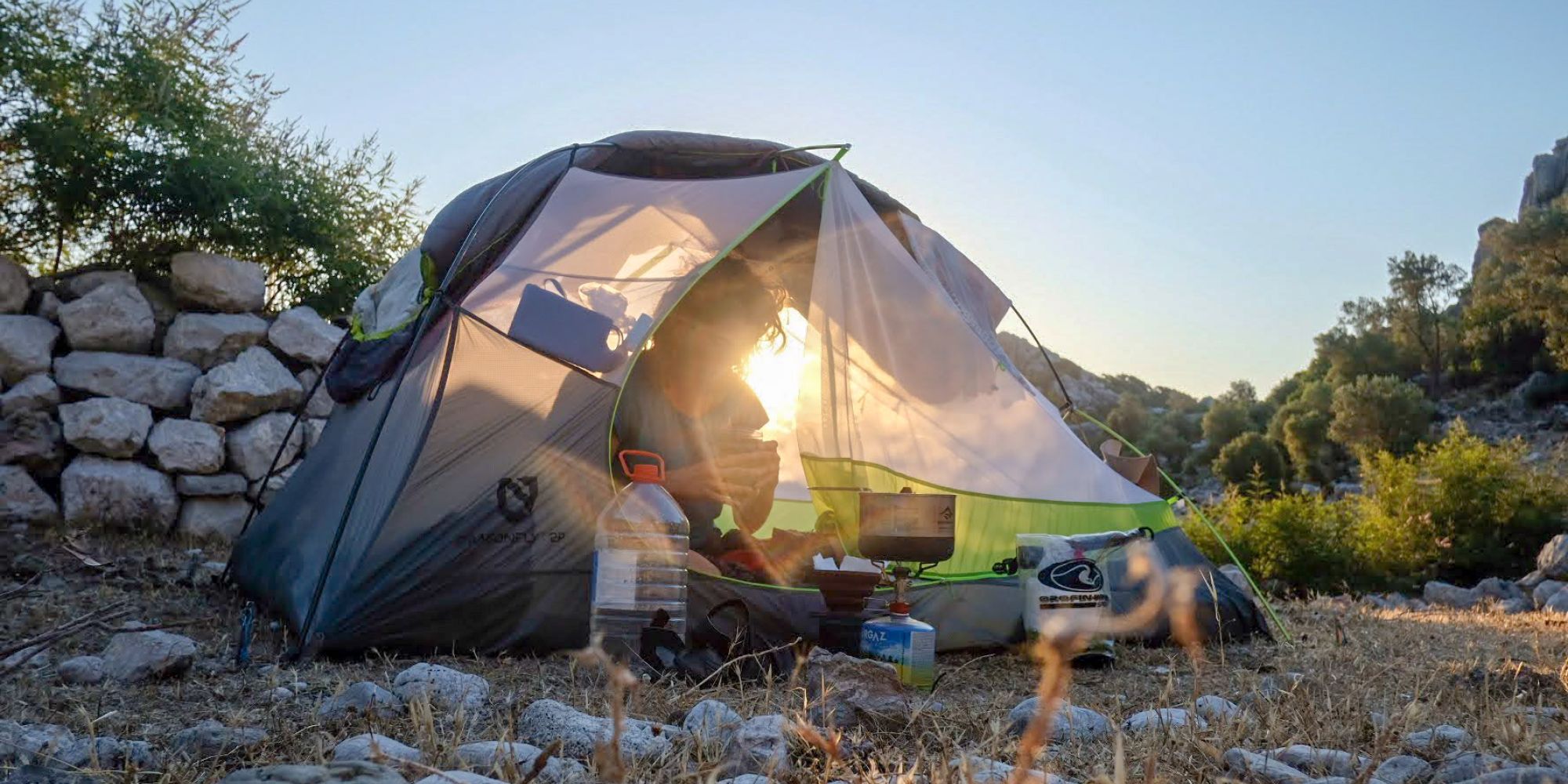
Safety
The rates of petty crime in Turkey are extremely low; stealing and break-ins are very rare so it’s unlikely that you’ll have something stolen or your car damaged while in the country. The only thing you may encounter is curious locals invading your personal space (asking too many questions etc.); they are usually harmless though.
Categories
- Culture (1)
- Food (1)
- Lists (3)
- Nature (2)
- Sports (1)
- Travel Tips (4)
- Uncategorized (1)
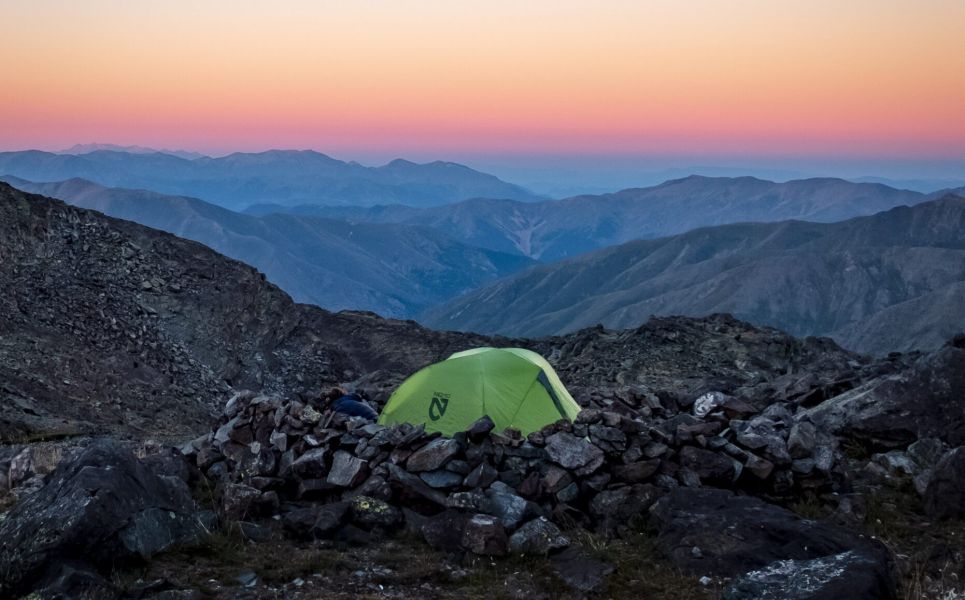
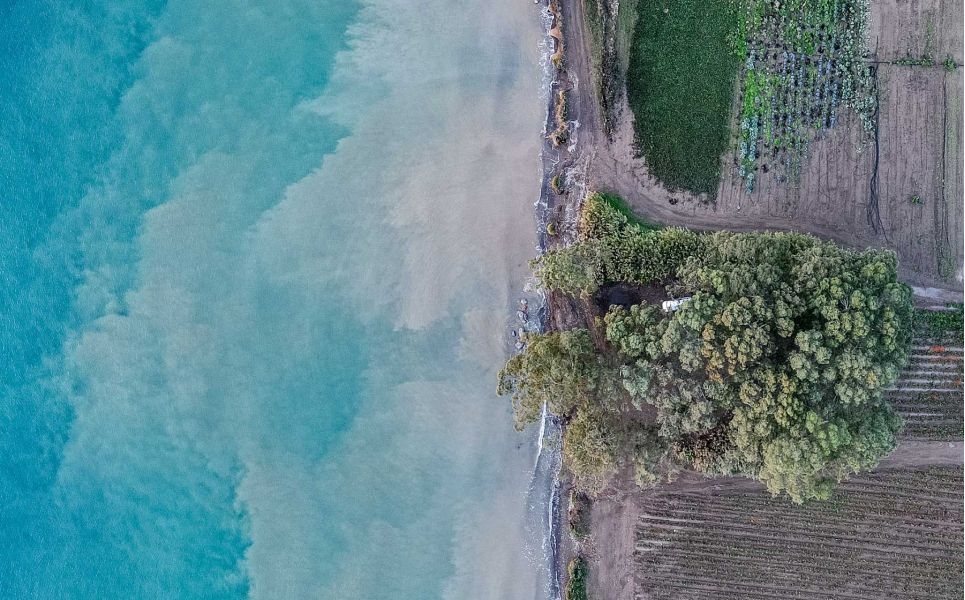
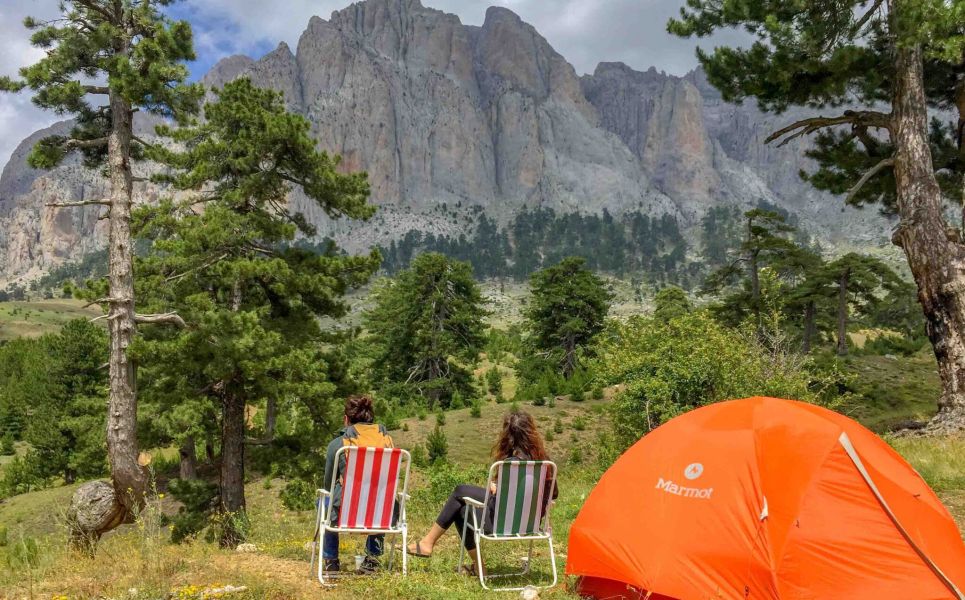
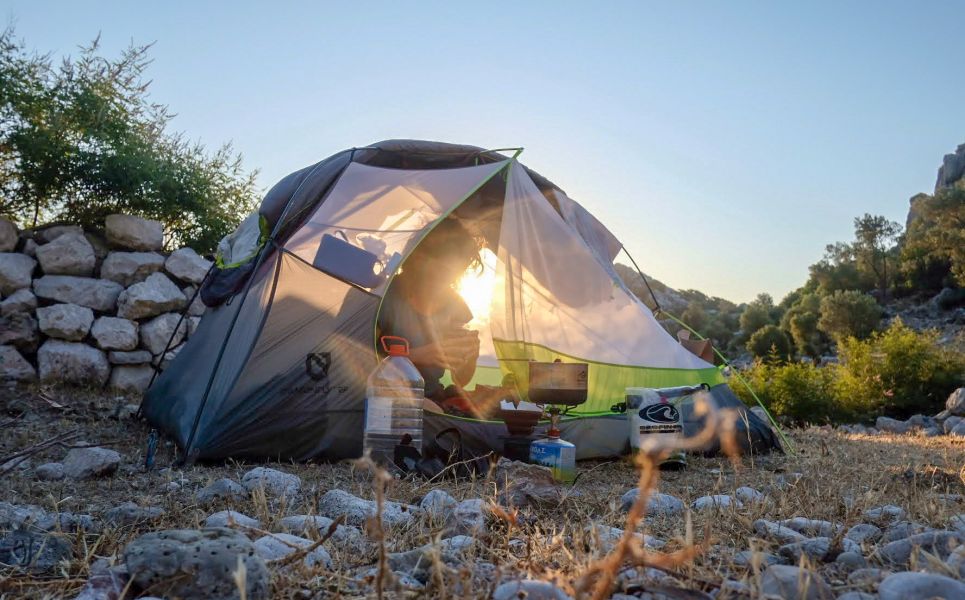
Thanks for this post. We are planning a camping trip to Turkey. We’ve been to Turkey before visiting Cappadocia, the Lycian Coast, Tethiye and Istanbul. Would love to go back – any recommendations?
This info was very useful. I’m planning to travel by mountain bike from England to Turkey and thinking of camping 3 to 6 months, my goal is to make it to Mongolia,
China.